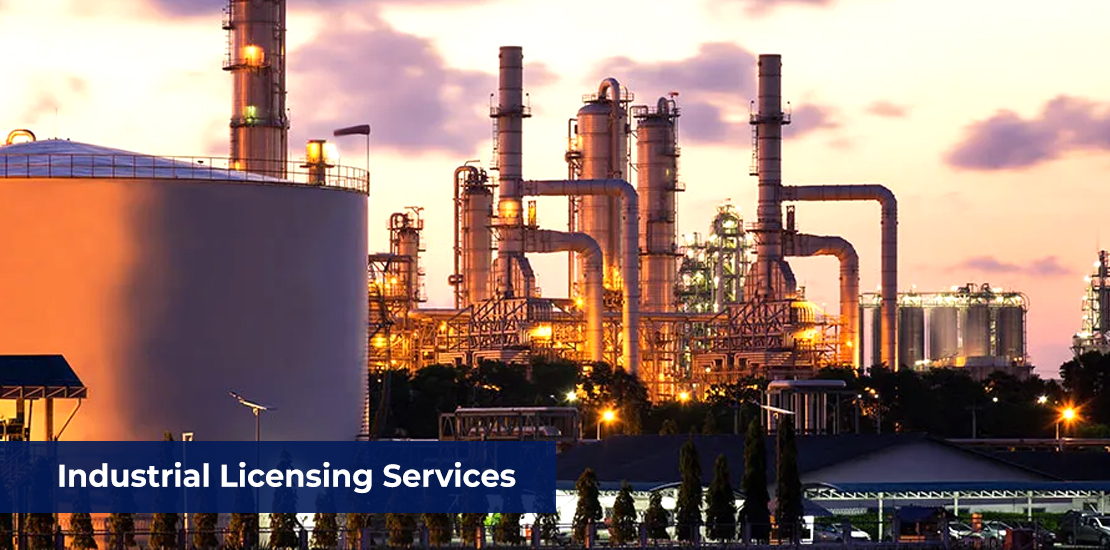
Industrial Licensing Services
Since the Indian economy was liberalized and deregulated in 1991, most firms have been excused from getting an industrial license to begin production in India. Only industries that may have an impact on public health, safety, or national security receive government scrutiny.
Industrial licenses in India are governed by the IDRA, 1951 Act, and are granted on the suggestion of the licensing committee by the Secretarial of Industrial Assistance (SIA).
The Act prohibits a licenced industrial venture from producing a new article unless the license has been renewed or a new license for the new article has been secured.
Manufacturing industries in India that require industrial licensing include:
- industries subject to compulsory licencing;
- industrial undertakings subject to geographic limitations. The licensing provision also applies to current industrial unit enlargement.
India’s Industries require Mandatory Licencing
Businesses wanting to develop industries in India to produce any of the following commodities must get a mandatory license:
- Defense aerospace and warships
- Hazardous chemicals
- Industrial explosives
- Tobacco items
Because of environmental, safety, and strategic concerns, above sectors require mandatory licensing.
Offering Industry Licensing Services
G&CC offers guidance on how to satisfy an industry’s licensing needs.
Incorporation of a partnership, LLP, or company
Certificate of Incorporation, Memorandum of Association / Articles of Association, and Ownership Proofs are essential for scaling the particular business and require several licenses from the relevant authority.
Udyog Aadhaar Registration
Entrepreneurs and business startups that desire to launch and run a Micro, Small, and Medium Enterprise (MSMEs) can register on UdyogAadhar Registration to take advantage of government services.
Shop and Establishment Licenses
State-by-state labor departments set regulations for the registration of businesses and establishments as well as for employee rights and benefits.
License for BOCW
A building and other construction worker registration certificate must be obtained by a contractor / employer within 60 days of hiring ten or more workers for any building or other construction project.
Registration with ESI / EPFO
According to the new notification, ESI and EPF registration would be required for all new companies to be taken at the time of incorporation. Separate ESI and EPF registrations would not be possible using the ShramSuvidha platform.
Contract Labour License
The Principal employer is responsible for ensuring that all requirements of the CLRA license are met in order to protect the welfare of contract workers who either work directly under a contractor or through a subcontractor.
Factory License
Before opening for business, every factory owner must get the building approved for use as a factory, register their factory and obtain a license for running the same with the local government.
Inter-State Migrant Workmen
When there is a skill gap among the available workers, contractors hire better-skilled people from other states who are available. Such hiring requires registration and licensing too from the local appropriate / concerned authorities.
Our Simplified Solutions for Diversified Compliances
PF & ESIC Compliance Services
Shop & Establishment Compliances
Payroll Processing Services
Labour Laws Licencing Services
Factory Act Compliances
Factory Building Plan/Licence Approval
Exemption Permission under Labour Laws
Vendor Compliance Management
Handling Departmental Inspections
Liaising with Authorities
Labour Laws Compliances
Notice Board Compliances

